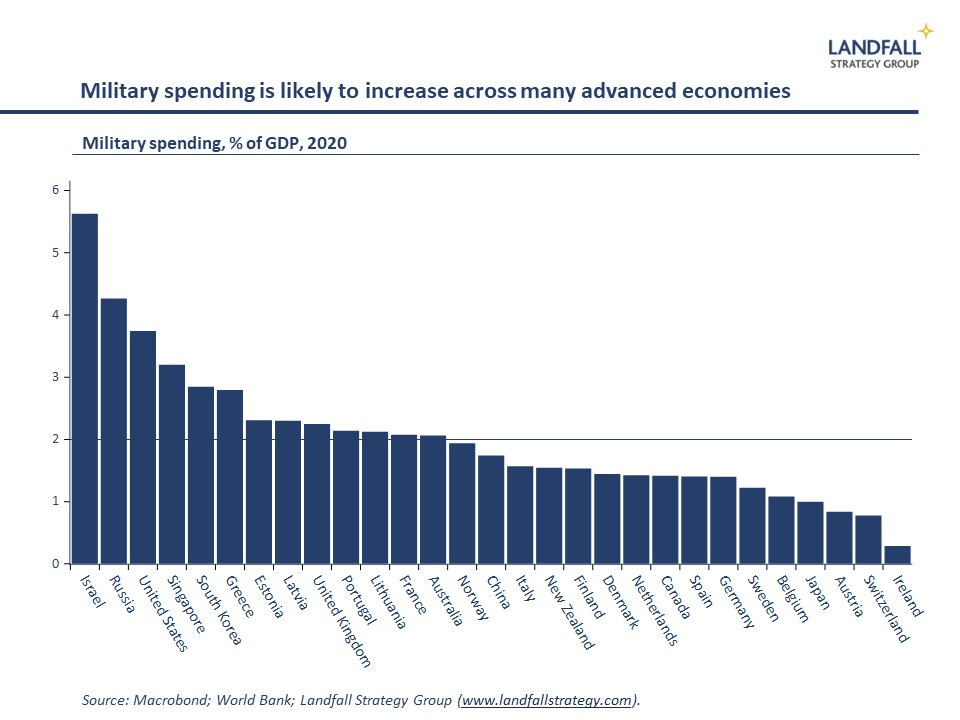Davos, guns & butter
Geopolitics trumped globalisation at Davos this week. But there are risks to be managed as globalisation becomes more political.
This week’s Davos meetings – a good guide to the zeitgeist – had a different tone than previous years. President Zelensky spoke on the opening morning; sessions on geopolitics were heavily attended; and there were widespread concerns about deglobalisation.
In light of Russia’s brutal invasion of Ukraine and the subsequent Western sanctions, the change in the global (or at least Western) consensus is understandable. NATO has been reinvigorated; commitments to increased military spending have been made; and politics is shaping economic engagement. In Econ 101 framing, there is a shift from butter to guns.
My recent notes have argued that we are moving to a more fragmented global economy, with fault lines arranged around political divisions. Countries and firms need to adapt: strengthening supply chain resilience, actively managing geopolitical risk exposures, and so on.
Domestic and international politics were not treated as seriously as they should have been in the global economy ove…




